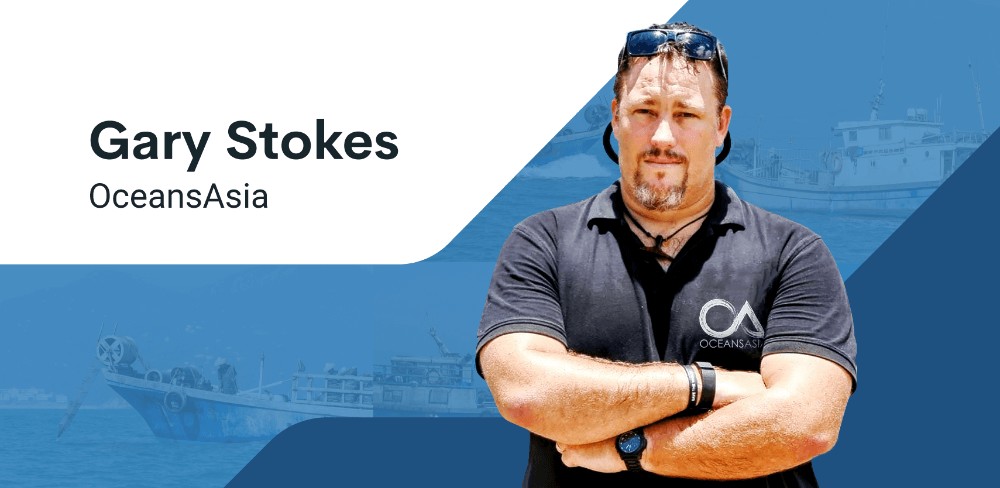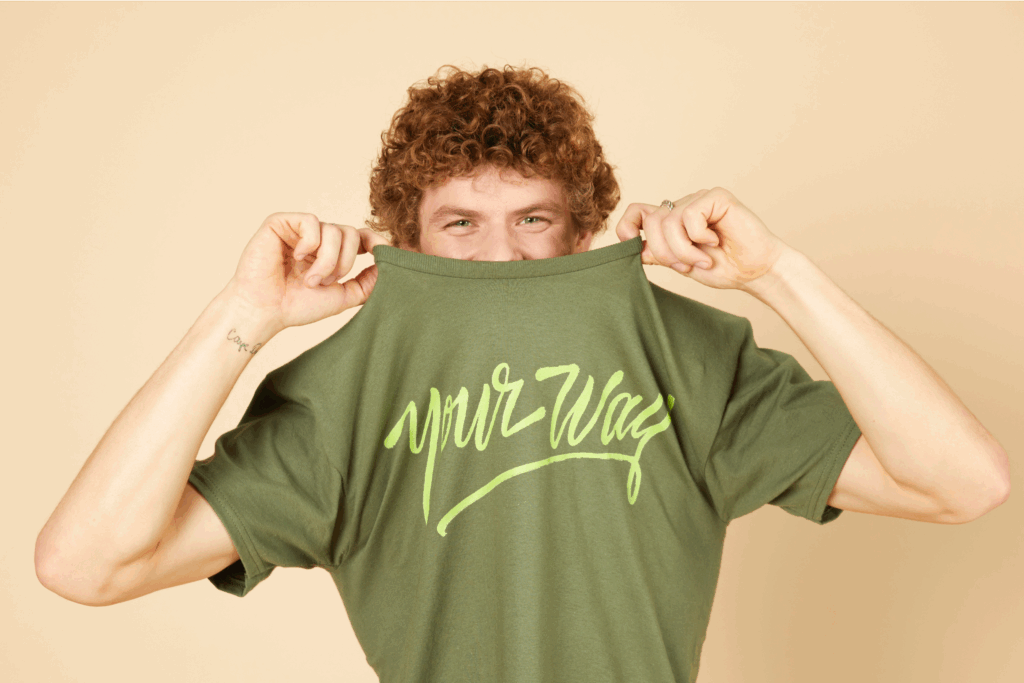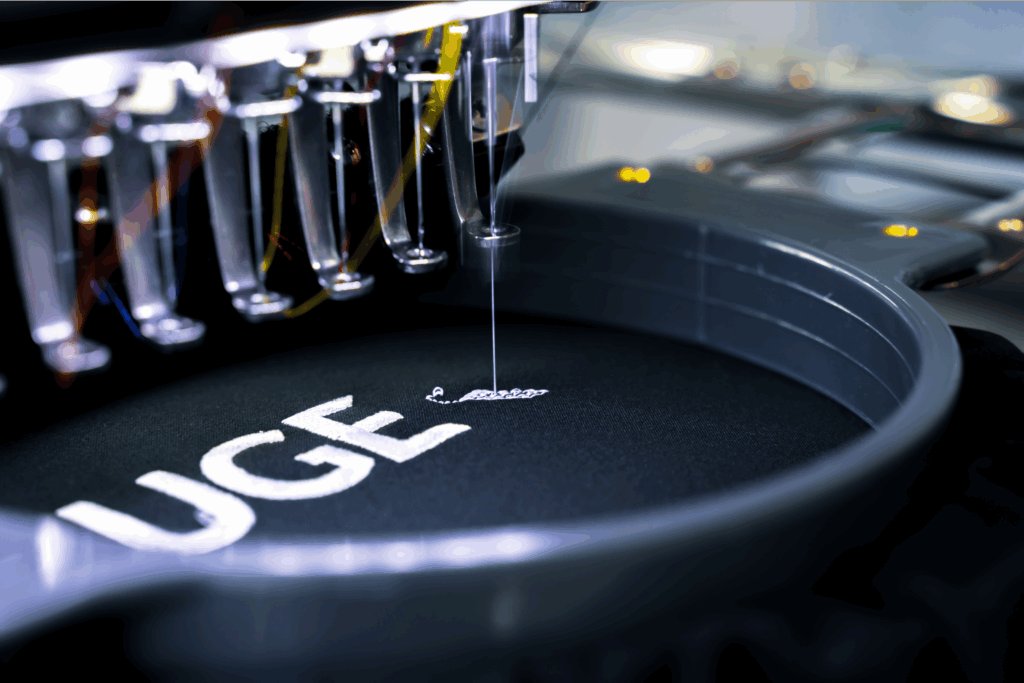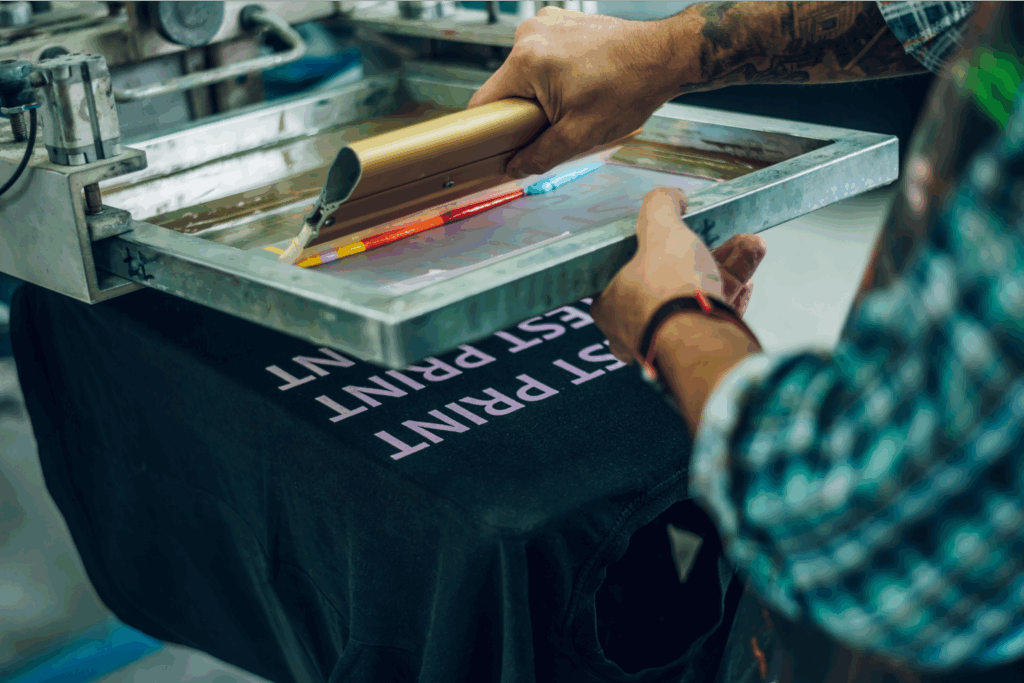Turn your dreams into success
Our Success Stories series has featured print-on-demand entrepreneurs from every walk of life. We’ve interviewed YouTube’s rising stars and influencers to artists and full-time parents. Today, we’re excited to sit down for a chat with Gary Stokes to talk about a topic that’s much dire to our day-to-day lives- our oceans and its future.
Gary is the co-founder of OceansAsia, a marine conservation organization that investigates wildlife crimes through fact-based research. Together with co-founder Dr. Teale Phelps Bondaroff, Gary and his team help spread awareness and bring to justice those responsible for destroying our oceans’ ecosystems.
A love affair with the ocean
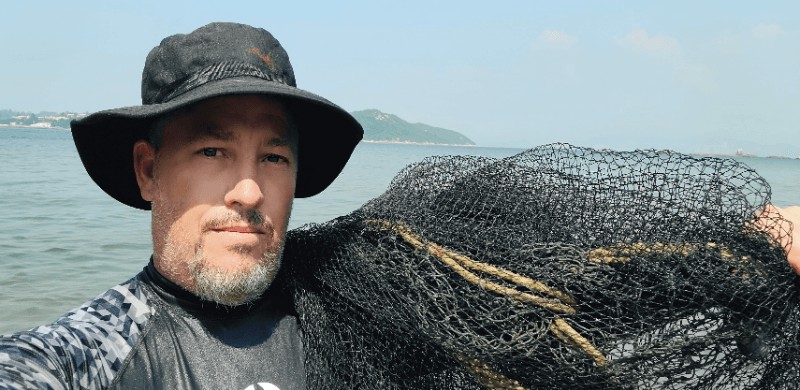
Born in the UK and raised in the Mediterranean, Gary Stokes developed a deep love for the sea at an early age. After moving to Asia 31 years ago, Gary has worked as a professional diving instructor and photographer. His work has been used by major news agencies and featured in many publications.
Gary has spent over 20 years working tirelessly in marine conservation. In this interview, we sat down to chat about the origins of OceansAsia, and the critical work that the organization carries out:
“Oceans Asia was set up in 2019 in Hong Kong, where I’m based. We focus on any ocean issue around the South East Asia region. Our co-founder Dr. Teale and I used to be roommates. We were also on the ships that chased Japanese whaling boats around the Antarctic. Dr. Teale is the academic behind our fact-based research, whereas I do the investigation and photography side of things.”
Gary is a former director of Sea Shepherd. His investigations into illegal shark fin trading have earned him international acclaim. We can see the impact of OceansAsia and of him as an activist even in the most minute ways. It was a simple Tweet that made the world’s media take notice of his latest project:
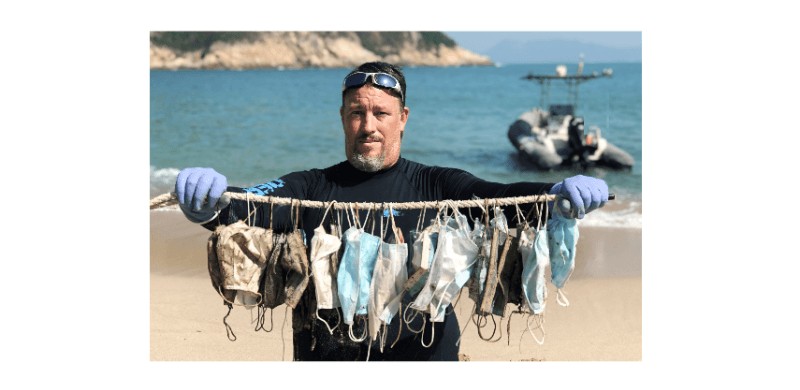
“We were on the beach during the COVID-19 pandemic and started seeing lots of facemasks washing up. I got a photo of me holding up a bunch of masks to the camera and put it out as a Tweet. By the morning, I’d had half a million views, and soon after that, every single news agency started calling. We’ve now had over 10,000 articles published about OceansAsia!”
Investigating ocean crime scenes
What makes OceansAsia stand out among other NGOs is what Gary calls ‘Ocean CSI’, or ‘Intelligence Based Conservation’. This is a process where research and science are used to tackle key issues at their source:
“It’s great that so many volunteers are willing to do beach clean-ups to tackle the huge issue of plastics pollution. However, the situation is more so that of an overflowing bathtub. If you keep mopping the bathroom floor, you’ll do it forever until someone turns off the tap. That’s what we try to do, cut problems off at their source using our investigation skills to find out where the issue is coming from. After that, we can try to get the relevant governments involved.”
OceansAsia’s methods seem to be working. Governments are now using the research to improve waste management, stopping debris from reaching the ocean.
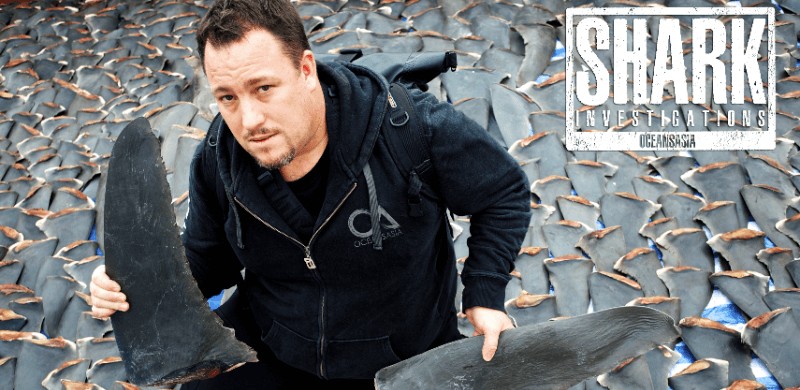
“We’ve already had the Chinese government taking our investigations seriously. They’ve taken action to reduce a good number of plastic waste sources. This year, we’ve had numerous NGOs at beach clean-up operations ask us where all the trash has gone, as the beaches are now much cleaner than normal. I think that shows that our method is working well, but we’ve still got a very long way to go.”
Gary has also had significant success dealing with illegal fishing and seafood smuggling. His research has helped Hong Kong’s maritime police to track down criminals entering Chinese waters:
“A lot of organizations rely on empathy. We love the oceans too, but unfortunately, governments don’t tend to listen to cuteness. For that reason, we try to focus on facts. For instance, we kept finding discarded boxes on beaches that had been thrown overboard by illegal lobster smugglers. We used the evidence to help authorities track them down to their source in Australia. The smugglers were using speedboats to cross into Chinese waters. When local law enforcement got involved, it ended up looking like something out of an action movie!”
Fame, findings, and funding
Gary’s tireless work and hands-on approach have seen him featured in the Netflix film “Seaspiracy”, as well as Eli Roth’s documentary “Fin”. However, he’s keen to point out that OceansAsia works on more conventional projects:
“We’ve also done a lot of research work studying the acoustics of pink dolphins, whose numbers are sadly in decline. We monitor the dolphin population and the finless porpoise, a shy creature nobody knows too much about. And of course, we’re very involved in ending the plastic crisis in our oceans.”
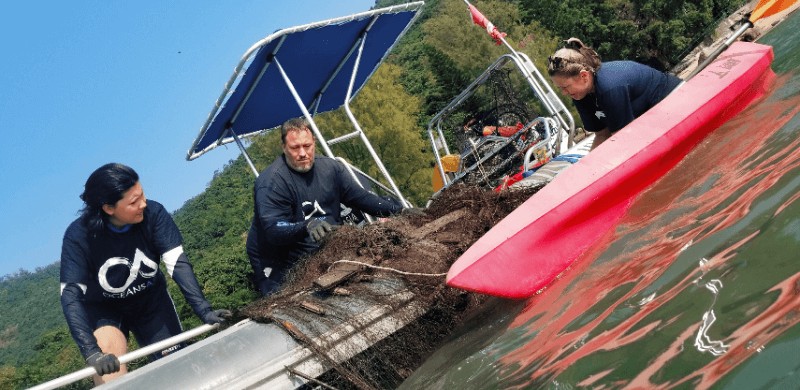
Gary and his colleagues at OceansAsia are all volunteers. There’s no payroll, and all funding goes towards fuel and the upkeep of their boat. There are also considerable costs involved in commissioning professional researchers and scientific studies.
“We need to be able to present our findings to law enforcement agencies and governments so that they can take action. We have to do this professionally and also in a manner that officers on the front line can understand.”
Funding a worthy cause through merchandise
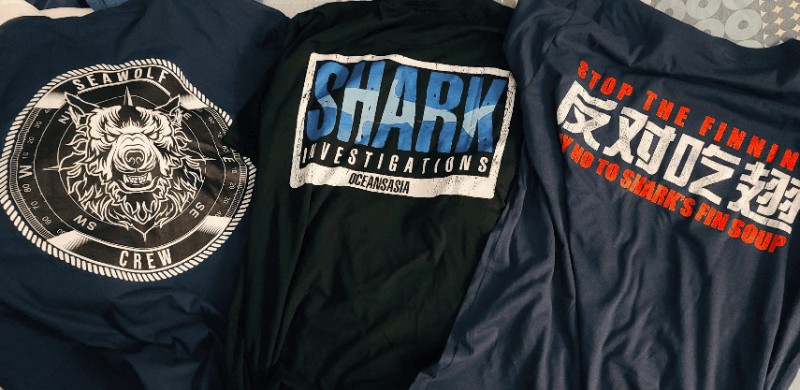
“We’re just starting out with OceansAsia, but when I was with Sea Shepherd, I can tell you that 50% of our funding came from merchandise sales. I consider it an important revenue stream. The merchandise also plays a massive role in getting our brand name out there and spreading awareness, so it’s an important core element for us.”
Print-on-demand is an essential piece of the merch puzzle. OceansAsia offers a range of branded items in their online store, helping them to raise funds and spread awareness:
“I like to use Printify products that tie in with what we do and help to spread our message. For example, we want kids to get involved and report the things they find on beaches to get them into the ‘Ocean CSI’ mindset. That makes items like Printify’s notebooks a good fit.”
Learn more about print on demand and starting a print-on-demand business.
We can all make a difference
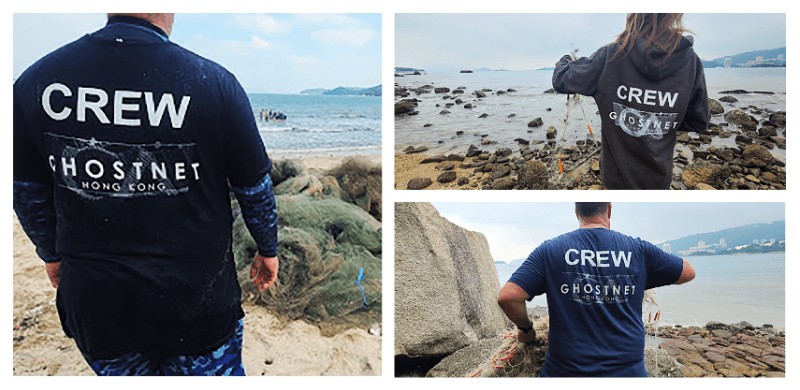
As the festive season approaches, the amount of waste dumped into the sea is expected to rise. However, Gary is quick to point out that our oceans are in danger all year round, and we need to act now to avert a catastrophe:
“Our oceans are in grave danger, with ecosystems in a state of near-collapse. If everyone did one small thing, it would have a huge impact. Going plant-based for just two days per week and cutting down your fish consumption would make a big difference. Avoiding single-use plastic bottles is also vitally important.
“Oceans can bounce back fast when given even the slightest chance. We’ve seen fish stocks recover within five years once the pressure is relieved.”
Determined to keep fighting
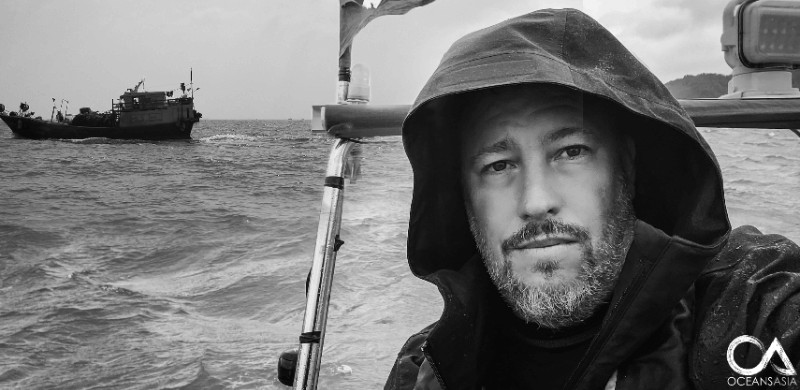
It’s obvious listening to Gary speak about the plight of the world’s oceans that he has enormous respect for our planet but also a relentless drive. So what motivates him to keep fighting so tirelessly after already giving two decades of his life to this cause?
“I have two small children, and I want to give them a planet where they can continue to see beautiful things like turtles, sharks, and dolphins. Beyond that, the oceans provide 60-70% of the air we breathe, so along with the forests that are being cut down, we’re slowly turning off our oxygen supply.
You only need to take a quick look at the horrifying images online to understand the scale of the crisis unfolding in our oceans. But does Gary see any glimmer of hope?
“It’s not all doom and gloom. I see a lot of hope, and positive things are happening. I’m involved with an amazing guy who is planting coral reefs in Thailand, in the area where the movie ‘The Beach’ was filmed. He and thirty volunteers spent a few months planting corals, and just three years later, a reef has started to form, and the fish are returning. There’s a lot to be depressed about, but these kinds of stories keep us motivated.”
Support OceansAsia’s initiatives

If you’ve been inspired by Gary Stokes and the OceansAsia organization, you can show your support by joining OceansAsia’s Patreon membership. There’s also an official OceanAsia merchandise store on the website, where you’ll find plenty of items to support this worthy cause.



